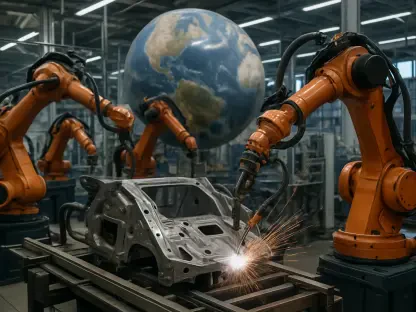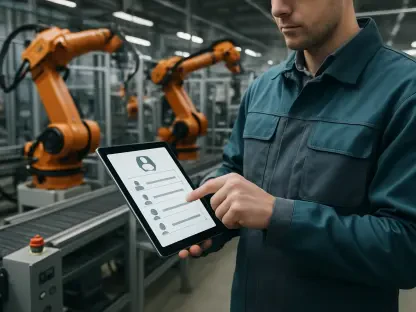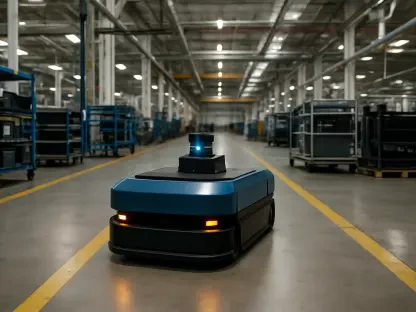The rapid evolution of the automotive industry has ushered in an era of connected vehicles, designed to make transportation safer, more efficient, and more reliable. However, the pivot to such advanced technology within vehicles does not come without new risks, particularly in terms of national security. With the seamless communication capability of Vehicle-to-Everything (V2X), connected vehicles are no longer just mechanisms of transport; they have become data hubs on wheels. Recognizing these challenges, the United States is taking proactive measures to protect its auto industry and, by extension, its citizens from cyber threats, especially those connected to foreign entities, notably China.
The Rise of Connected Vehicles and National Security Risks
Connected vehicles bring the promise of a revolutionary transport experience. With Vehicle-to-Everything (V2X) communication, these cars can anticipate and avoid dangers on the road, reduce traffic jams, and even coordinate with urban infrastructures to streamline travel. However, the data that connected vehicles generate and transmit can be exploited if it falls into the wrong hands. Such data includes granular details not just of vehicle operation but also of user behaviors and travel patterns. The potential for this information to be misused for surveillance or cyber warfare has raised alarms at the highest levels of government.The pivot towards technology-driven transportation in the US is confronted with a paradox: as cars become smarter, they become potential targets for cyberattacks and international espionage. The Biden administration recognizes this risk and has thus instigated an investigation into the security implications of foreign technologies, particularly from China, embedded in the nation’s automotive infrastructure. The investigation’s findings may lead to tighter regulations and security requirements for connected vehicles to protect citizens’ privacy and ensure that such vehicles cannot be remotely manipulated in cyber-physical attacks.
The Role of Chinese Technology in the US Automotive Supply Chain
The intricate web that is the global automotive supply chain has increasingly involved China, raising multiple red flags. Securing America’s Future Energy (SAFE), along with its Coalition for ReImagine Mobility (ReMo), has highlighted the dominance of Chinese companies in the production of crucial components for connected vehicles. These parts often enter US markets indirectly through neighboring countries such as Mexico and Canada, thereby bypassing existing tariffs and leveraging the trade benefits within the USMCA free trade agreement. The harmonization of supply chains across these countries has inadvertently created a backdoor for Chinese components to integrate into American cars—a vector that could potentially be utilized for espionage or as a pressure point in times of conflict.American industry experts are scrutinizing these imports since they could serve as channels for foreign surveillance and sophisticated cyberattacks. The statistics paint a worrisome picture: even as the US imposes tariffs on Chinese-manufactured cars, Chinese automotive parts still find their way into the American automotive ecosystem. This circumvention of tariffs is not an act of illicit trade but a result of the interconnectedness of global trade agreements, raising the question of whether the current framework is sufficient to protect national security interests in the rapidly advancing automotive sector.
Bipartisan Response to Cybersecurity Threats in the Auto Sector
Alarmingly, the cybersecurity concerns in the auto sector are not speculative; they have secured a bipartisan response in Washington D.C., signaling the gravity of the threat. Lawmakers across the political spectrum are uniting in the call for protective measures against the exploitation of connected vehicles by foreign entities. Evidence of Chinese-made vehicles reportedly being used for surveillance on US soil has prompted warnings from congressional representatives, highlighting the need for stringent action to preemptively thwart any efforts at intelligence gathering by adversarial nations.The collective stance is clear: there must be a level playing field with respect to the auto market. If American vehicles face restrictions in China, then it follows that Chinese vehicles should encounter similar roadblocks in the US. This view feeds into a broader strategy for dealing with the strategic competitor that is China, a subject that the House Select Committee on the Strategic Competition Between the United States and the Chinese Communist Party is closely monitoring.
Securing the Auto Supply Chain against Foreign Threats
The automotive industry is undergoing a transformation, introducing connected vehicles that bring numerous benefits, such as enhanced safety and efficiency. However, these advancements also introduce new national security risks, as these sophisticated vehicles act as mobile data centers, capable of extensive communication through Vehicle-to-Everything (V2X) technology. These risks are particularly concerning when it comes to the potential for cyber threats from foreign nations, including China.Acknowledging these emerging threats, the US is taking steps to safeguard its automotive sector and protect the nation’s security infrastructure. Efforts include implementing advanced cyber protection measures, conducting thorough risk assessments, and developing strategies to mitigate potential vulnerabilities associated with connected cars. By doing so, the US aims to ensure the security of its connected vehicles against cyber espionage and other malicious acts that could compromise both individual privacy and national security. This proactive stance is vital in keeping abreast of the rapid technological evolution of the industry, while maintaining the trust and safety of American consumers.









